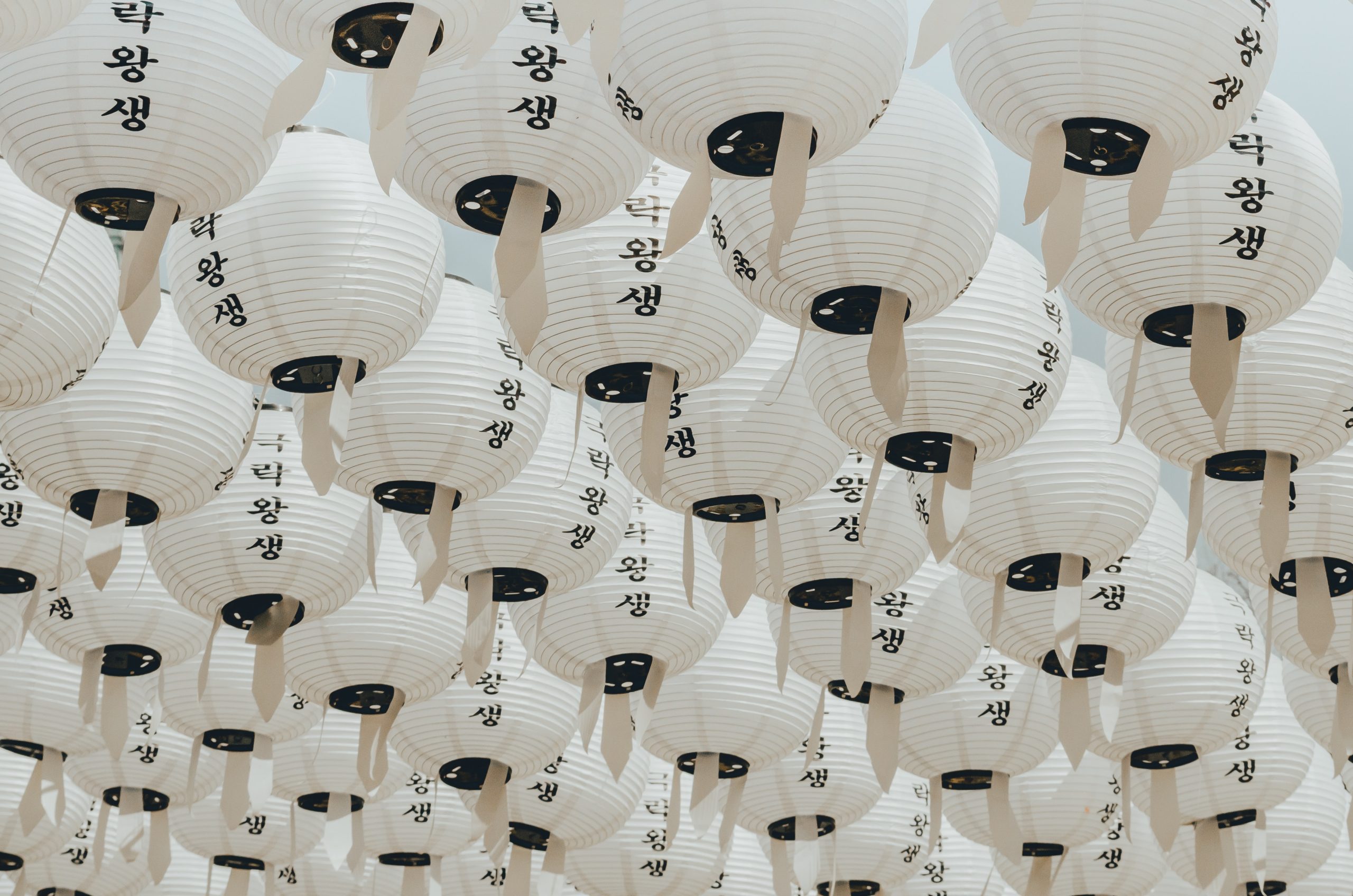
How To Know Modern Korean Literature | Top 10 Korean Books
Are you interested in South Korean culture? I recently mentioned in my post with the best 10 Korean movies that the Korean movie scene is
South Korea, officially known as the Republic of Korea, is a country located in East Asia. It is situated on the southern half of the Korean Peninsula, with North Korea to its north, and is bordered by the Sea of Japan (East Sea) to the east, the Yellow Sea to the west, and the Korea Strait to the south. South Korea has a population of over 51 million people and its capital and largest city is Seoul.
South Korea is known for its rich cultural heritage, high-tech industries, and vibrant pop culture. It is home to some of the world’s largest conglomerates such as Samsung, LG, and Hyundai, and has a highly developed economy. South Korea is also famous for its cuisine, which includes dishes such as kimchi, bulgogi, and bibimbap.
In recent years, South Korea has become a major player in the global entertainment industry, with its music, television dramas, and movies gaining popularity worldwide. The country is also known for its advanced technology and is a leader in fields such as electronics, robotics, and biotechnology.
“Pachinko” is a novel by Min Jin Lee published in 2017. The book tells the story of a Korean family over several generations, starting in the early 1900s in Korea and spanning through the 1980s in Japan. The story begins with Sunja, a young woman who falls in love with a wealthy, married businessman and becomes pregnant with his child. When she refuses to become his mistress, she is rescued by a kind Christian minister who marries her and takes her to Japan. There, she and her family face discrimination and hardship as they try to establish a new life in a country that is hostile to their presence.
The novel explores themes of identity, family, love, and sacrifice, as well as issues of race, class, and cultural difference. It provides a rich and detailed portrayal of Korean and Japanese culture, history, and society, and sheds light on the experiences of marginalized communities during a turbulent period of history. “Pachinko” has been highly acclaimed for its compelling story, vivid characters, and powerful themes, and has been a finalist for numerous literary awards.
“Please Look After Mom” is a novel by South Korean author Kyung-sook Shin, first published in 2008. The story revolves around a family’s search for their elderly mother who goes missing in a busy subway station in Seoul. Through the perspectives of the mother and her family members, the novel explores the complex dynamics of family relationships, the sacrifices made by mothers and the unspoken love between family members.
As the family searches for their mother, they come to realize how much they took her for granted and how little they understood about her life and sacrifices. Each family member confronts their own guilt and regret over their past treatment of their mother as they come to terms with her absence.
The novel is notable for its honest portrayal of contemporary Korean society, as well as its poignant depiction of the sacrifices and love of mothers. “Please Look After Mom” has been translated into multiple languages and has won several awards, including the Man Asian Literary Prize and the International Dublin Literary Award.
“Kim Jiyoung, Born 1982” is a novel by South Korean author Cho Nam-Joo, first published in 2016. The book tells the story of Kim Jiyoung, a young woman living in modern-day South Korea who is plagued by discrimination and sexism in her personal and professional life.
The novel is structured as a series of episodes from Kim Jiyoung’s life, from her childhood to her adulthood, showing how gender inequality affects her at every stage. It also incorporates statistical data and research on gender discrimination in South Korea, painting a vivid picture of the societal and cultural barriers that women face in the country.
Through Kim Jiyoung’s story, the novel explores the broader issues of gender inequality, including workplace discrimination, the gender pay gap, and societal expectations placed on women. It has been praised for its honest and unflinching portrayal of the struggles faced by women in South Korea and has sparked widespread discussion and debate about gender inequality in the country.
“Kim Jiyoung, Born 1982” has been translated into multiple languages and has become a cultural phenomenon in South Korea, sparking a national conversation about gender equality and inspiring a film adaptation.
“Human Acts” is a novel by South Korean author Han Kang, first published in 2014. The book is set in Gwangju, South Korea, during the 1980 student uprising and subsequent military crackdown. The story revolves around a group of people who are affected by the violence and trauma of the events, and their experiences of loss, grief, and survival.
The novel is structured as a series of interconnected narratives, each told from the perspective of a different character. Through these voices, the book explores the themes of human brutality, resistance, and resilience in the face of oppression.
The novel is notable for its frank and unflinching depiction of violence, including scenes of torture and execution. At the same time, it is also a deeply compassionate and empathetic portrayal of the human capacity for compassion and solidarity in the face of unimaginable horrors.
“Human Acts” has been translated into multiple languages and has won several literary awards, including the Man Booker International Prize. The novel has been widely praised for its lyrical prose, its vivid portrayal of historical events, and its unflinching exploration of the human experience in the face of trauma and violence.
“The Tears of My Soul” is a memoir by South Korean author Kim Hyun Hui, first published in 1993. The book recounts the author’s life as a North Korean spy and her involvement in the bombing of Korean Air Flight 858 in 1987.
The memoir describes Kim’s upbringing in North Korea and her training as a spy, as well as her experiences living in South Korea under a false identity after the bombing. Kim details the psychological and emotional toll of her actions, as well as the physical dangers she faced as a spy and later as a defector.
The book is a powerful and moving account of one woman’s journey through the complex and often brutal realities of espionage and the personal costs of living a life built on lies and deception. It is also a testament to the human capacity for redemption and the importance of facing the truth, no matter how painful.
“The Tears of My Soul” has been widely acclaimed for its honesty, its gripping storytelling, and its insights into the political and social realities of the Korean peninsula. The book has been translated into multiple languages and has inspired a documentary film and a television drama adaptation.
“Parasite” is a South Korean black comedy thriller film directed by Bong Joon-ho, released in 2019. The movie tells the story of the poor Kim family, who live in a cramped basement apartment and struggle to make ends meet. When their son Ki-woo gets an opportunity to tutor the wealthy Park family’s daughter, the Kims see a chance to improve their lot in life.
As the Kims infiltrate the Parks’ home, they become increasingly enmeshed in the lives of their wealthy employers. However, as secrets and tensions begin to simmer beneath the surface, events quickly spiral out of control, leading to a shocking and violent climax.
The film explores themes of class conflict, wealth inequality, and the human cost of social mobility. It received critical acclaim for its sharp writing, masterful direction, and standout performances, winning multiple awards including the Palme d’Or at the 2019 Cannes Film Festival, and four Oscars at the 2020 Academy Awards. It is widely regarded as one of the greatest films of the 21st century.
“Oldboy” is a 2003 South Korean neo-noir action thriller film directed by Park Chan-wook. The movie tells the story of Oh Dae-su, a man who is imprisoned in a hotel room for 15 years without any explanation. After being unexpectedly released, he embarks on a mission to uncover the truth behind his captivity and seek revenge on those who wronged him.
As he delves deeper into the mystery, Oh Dae-su discovers shocking secrets about his past and his captor, leading to a series of violent and disturbing revelations. The film explores themes of revenge, redemption, and the psychological toll of imprisonment.
“Oldboy” received critical acclaim for its bold and innovative storytelling, stunning cinematography, and intense performances, particularly by lead actor Choi Min-sik. It won the Grand Prix at the 2004 Cannes Film Festival and has since become a cult classic and one of the most influential films in Korean cinema.
“The Handmaiden” is a 2016 South Korean erotic thriller film directed by Park Chan-wook, loosely based on the novel “Fingersmith” by Sarah Waters. The film is set in 1930s Korea, under Japanese colonial rule, and tells the story of a young Korean pickpocket named Sook-hee who is hired to serve as the handmaiden of a wealthy Japanese heiress, Lady Hideko.
As Sook-hee begins to carry out her duties, she forms a close bond with Lady Hideko and helps her to escape from her cruel and manipulative uncle. However, as their plan unfolds, a web of deceit and betrayal is revealed, with multiple twists and turns that keep the audience guessing until the very end.
The film explores themes of sexuality, power, and deception, and is known for its lush visual style, complex characters, and compelling storytelling. “The Handmaiden” received widespread critical acclaim, winning numerous awards and cementing Park Chan-wook’s reputation as one of South Korea’s most talented and innovative filmmakers.
In a small Korean province in 1986, two detectives struggle with the case of multiple young women being found raped and murdered by an unknown culprit.
“Squid Game” is a 2021 South Korean survival thriller series created by Hwang Dong-hyuk. The show follows a group of financially struggling people who are invited to participate in a mysterious game where they must compete in deadly childhood games for the chance to win a huge cash prize.
As the games progress, the contestants are forced to confront their own moral dilemmas and face the brutal consequences of losing. The series delves into themes of class inequality, human desperation, and the lengths people will go to in order to survive.
“Squid Game” has become a global phenomenon, breaking records as the most-watched series on Netflix and garnering critical acclaim for its suspenseful storytelling, social commentary, and stunning visuals.
South Korea has a vibrant and diverse music scene that has gained immense popularity around the world in recent years. K-pop, or Korean pop music, has become a global phenomenon and is characterized by its catchy melodies, synchronized dance routines, and visually stunning music videos.
In addition to K-pop, South Korea is also known for its traditional music, which includes folk songs, court music, and traditional instruments such as the gayageum and the daegeum. Korean traditional music often features a pentatonic scale and reflects the country’s rich cultural heritage.
South Korea has also produced successful musicians in other genres such as hip-hop, R&B, and rock. Many Korean musicians are known for their impressive vocal abilities and their ability to fuse different musical styles and genres.
The South Korean music industry is highly competitive, with many aspiring musicians vying for a chance to make it big. The country has a well-developed system of talent agencies that train and manage K-pop idols and other musicians.

Are you interested in South Korean culture? I recently mentioned in my post with the best 10 Korean movies that the Korean movie scene is

Korean movies are hot. After the success of Squid Game, Netflix is doubling its investment in Korean films and series. Have you already jumped on

